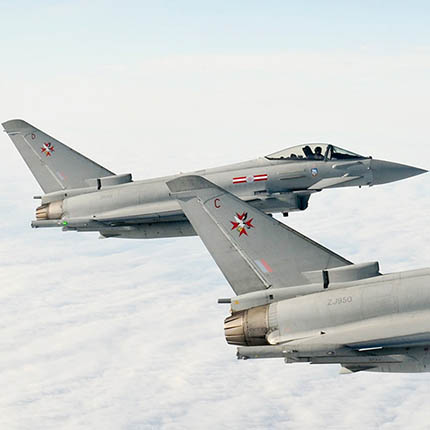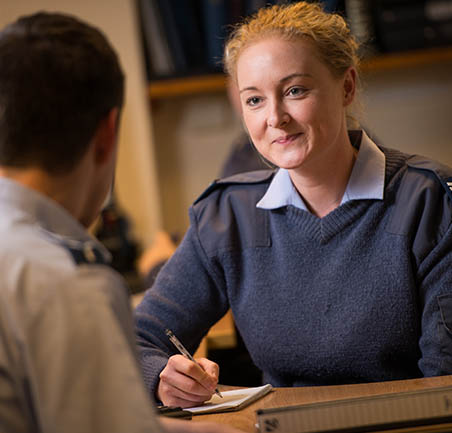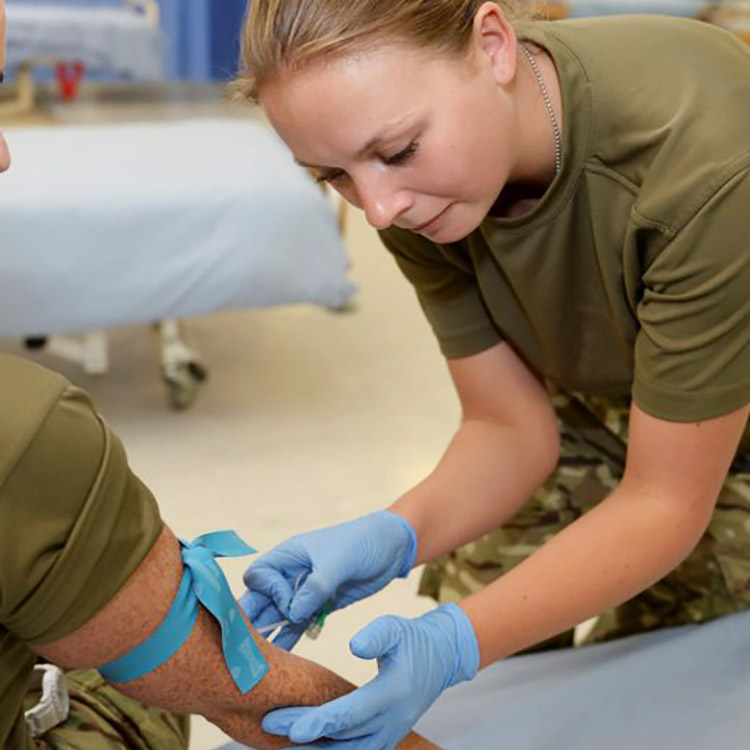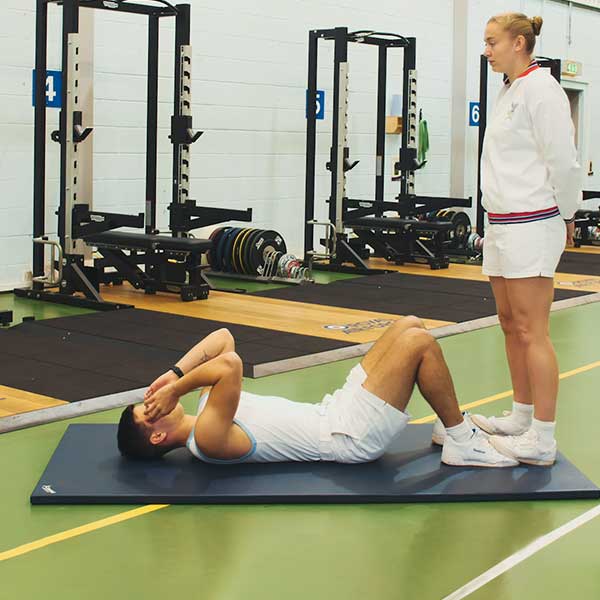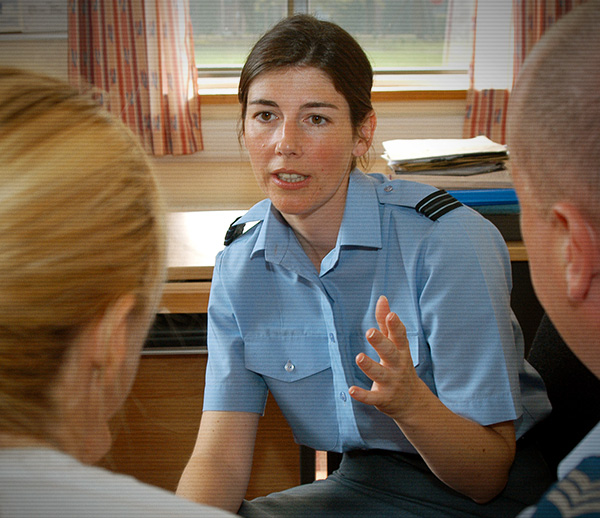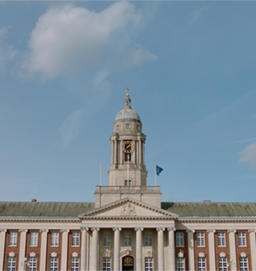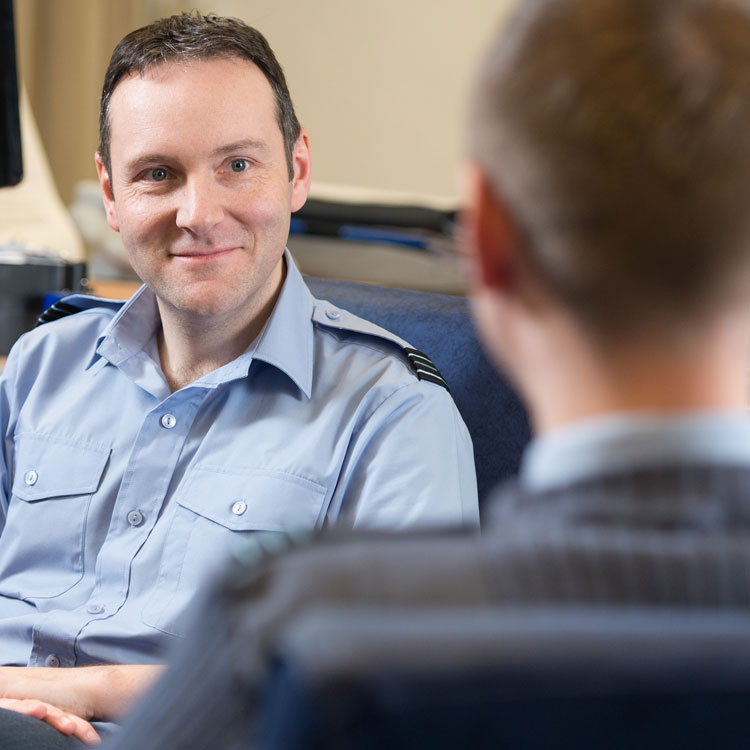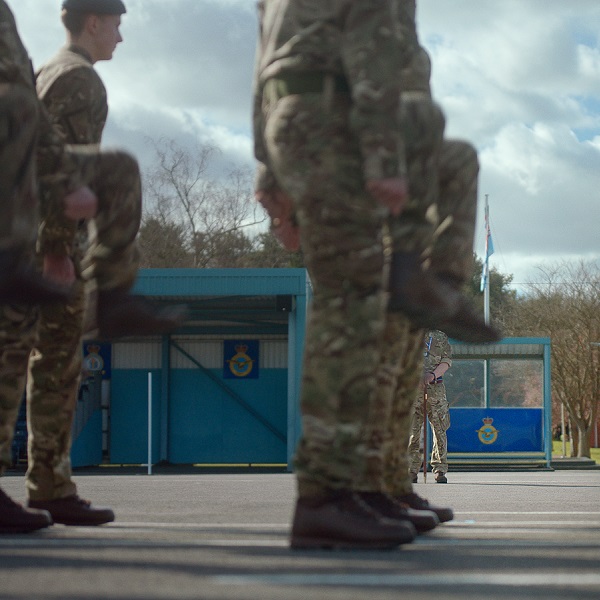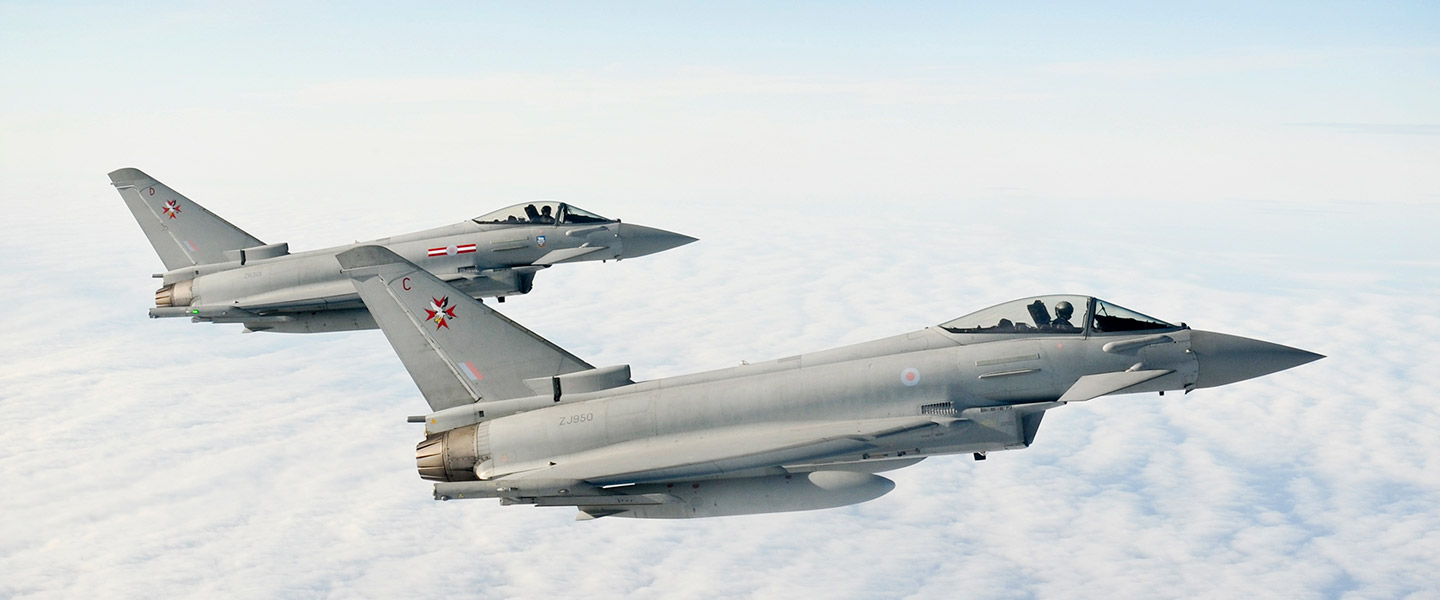
When the Royal Air Force is not on operations, it is training. As an RAF Personnel Training Officer, you will have opportunities to lead, develop and manage training on RAF and MOD Units throughout the UK, on overseas bases, and on exercises and operations around the world.
Already applied? See what the next steps are >
Given the variety of roles within the Training Specialisation, Training Officers have opportunities to lead, develop and manage training on RAF and MOD Units throughout the UK, on overseas bases, and on exercises and operations around the world.
- Training management
- Developing programmes that enhance human performance
- Employment in flying training development
- Parachute training for the UK’s Airborne Forces
The academic qualification for acceptance into the Training Specialisation is a relevant bachelor’s degree (minimum 2:2) as detailed below, with preference for an individual with a proven teaching or training background.
- Education
- Sport/Exercise Science
- Psychology
- Learning Technology.
You should also hold GCSEs at a minimum of Grade C/4 to, or Scottish National 5 Grade C in English Language, Mathematics and at least 3 other subjects.
Non-graduates should demonstrate proven skills and experience in training related roles and hold two A2 Levels / three Highers at Grade C or above (excluding General Studies, Critical Thinking and Citizenship Studies) totaling 64 UCAS points.
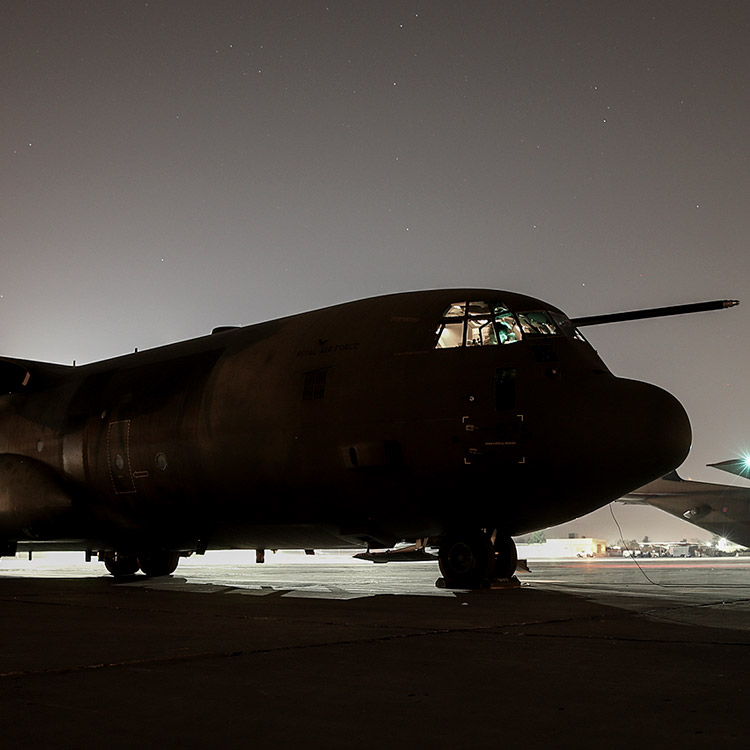
- Be aged 21 – 47 years old (Must attest before 48th birthday)
- Be a citizen of the United Kingdom or the Republic of Ireland, holder of dual UK/other nationality or have been a Commonwealth citizen since birth (with ‘right to work’ immigration status)
- Pass the Officer and Aircrew Selection Centre
- Pass a Fitness test - Details below
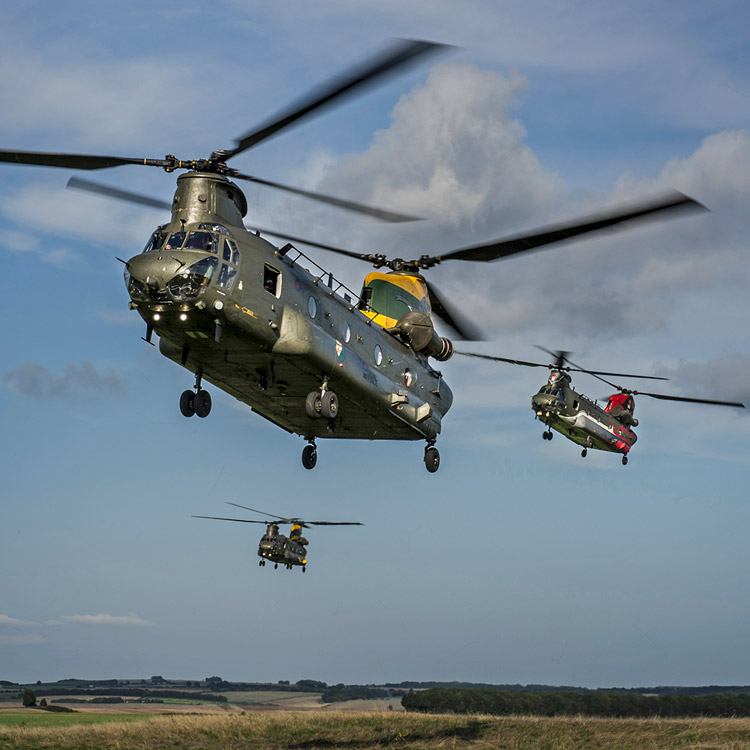
Thanks to subsidised food, travel, accommodation and free gym you get more money in your pocket.

Applicants must be aged between 21 and 47 years old.
Applicants must also read all of the sections below and make sure they meet all entry requirements before submitting an application.

NATIONALITY
You must be a citizen of the United Kingdom or the Republic of Ireland, holder of dual UK/other nationality or have been a Commonwealth citizen since birth (with ‘right to work’ immigration status).
RESIDENCY
Whether or not you were born in the United Kingdom, you should have resided there for the 5 years immediately preceding your application, but candidates with a minimum of 3 years may be considered.
If you have resided abroad for a period due to work or study, you may still be eligible on a case by case basis. Please continue this registration and proceed to your full application.

You must be physically fit to complete both initial and specialist training, and to do your role effectively. To check your fitness levels, we put every candidate through at least two separate fitness tests as part of the application process.
The first of these is the Pre-Joining Fitness Test (PJFT) which takes place at a fitness centre local to you. This consists of the following:
- 2.4km (1.5m) run on a treadmill (set to zero incline)
- Achieve the required number of press-ups - within 60 seconds
- Achieve the required number of sit-ups - within 60 seconds
How fit you need to be to pass these tests can vary depending on role, age and gender. The requirements are listed on the charts below (Male and Female).
| MEN | |||
| AGE | 2.4 Km Run | Press-ups | Sit-ups |
| (Mins) | (No.) | (No.) | |
| 15-16 | 12.39 | 20 | 35 |
| 17-29 | 12.11 | 20 | 35 |
| 30-34 | 12.36 | 19 | 32 |
| 35-39 | 13.02 | 18 | 29 |
| 40-44 | 13.30 | 17 | 26 |
| 45-49 | 14.00 | 16 | 23 |
| 50-54 | 14.34 | 15 | 20 |
| WOMEN | |||
| AGE | 2.4 Km Run | Press-ups | Sit-ups |
| (Mins) | (No.) | (No.) | |
| 15-16 | 14.59 | 10 | 32 |
| 17-29 | 14.30 | 10 | 32 |
| 30-34 | 14.55 | 9 | 29 |
| 35-39 | 15.21 | 8 | 26 |
| 40-44 | 15.58 | 7 | 23 |
| 45-49 | 16.32 | 6 | 20 |
| 50-54 | 17.06 | 5 | 17 |
See here for more information about the tests and a training plan
The second fitness test will take place at RAF Cranwell as part of your familiarisation visit. This includes press-ups, sit-ups and the Multi-Stage Fitness Test (MSFT or Bleep test). Standards to achieve will be given during the visit.

Candidates joining the RAF must be medically fully fit, both physically and psychologically, to meet the challenges of military service, during which they will be expected to deploy, potentially at short notice, to locations world-wide that are remote from established medical care.
Certain medical conditions could preclude entry to the RAF. Further details can be found in this document.
Before your application, please note that Body Mass Index Requirements are as follows:
| Age | Male and female minimum | Male and female maximum | Male maximum with additional assessment | Female maximum with additional assessment |
| 18 + | 18 | 30 | 32 | 32 |
| 16 to < 18 | 17 | 27 | 27 | 27 |
Eyesight requirements vary for different roles. A requirement to wear glasses or contact lenses may be allowed for aircrew.
If you are unsure about any health criteria, please continue your application and your eligibility will be assessed at the medical examination stage.
During your application, the Medical Risk Assessment that all candidates undergo is there to make sure that you are healthy enough for the intense training required by the RAF. Your application will be rejected if you fail to meet the minimum acceptable medical standard for entry. Your medical history is confidential and is not disclosed to those not authorised to hold this information.
DURING YOUR APPLICATION:
The Medical Risk Assessment that all candidates undergo is there to make sure that you are healthy enough for the intense training required by the RAF. Your application will be rejected if you fail to meet the minimum acceptable medical standard for entry. Your medical history is confidential and is not disclosed to those not authorised to hold this information.

YOU MUST:
- Declare any previous spent and unspent convictions
- Check if you qualify under the Rehabilitation of Offenders Act 1974 through this summary
- Have a basic background check to get Security Check level clearance

YOU CAN'T APPLY FOR THE RAF IF YOU:
- Have been or are a member of a group that stirs up racial hatred and violence
- Are waiting to appear in court, or have unspent convictions. You may also have to declare spent convictions for certain roles
- Misuse drugs, solvents and anabolic steroids. But each case is considered upon its own merits
- Have tattoos, brands or bead implants that are obscene or offensive.
Any permanent or temporary tattoos, whether ordinarily visible or not, must not be obscene or offensive (eg, racist, anti-religion or belief, crude, overtly sexist, homophobic, drug related or of an extreme political nature). Tattoos may be worn on the side and back of the neck but tattoos on the back of the neck must not extend above the natural hairline (scalp tattoos are not permitted). - Have body piercing which causes holes that do not close up
- Declare yourself to be an 'undischarged' bankrupt
Beard Policy:
A revised facial hair policy has been agreed by the Air Force Board which will allow serving personnel to wear a smart, neatly-trimmed, full-set beard whilst maintaining high standards of appearance. The length of acceptable beards is between Grade 1 (2.5mm) and Grade 8 (25.5mm).
The wearing of beards during Phase 1 and Phase 2 training is currently under consideration and details will be advised when available.
If you don’t have any of the above, you might still be able to apply. For more information please contact us.
